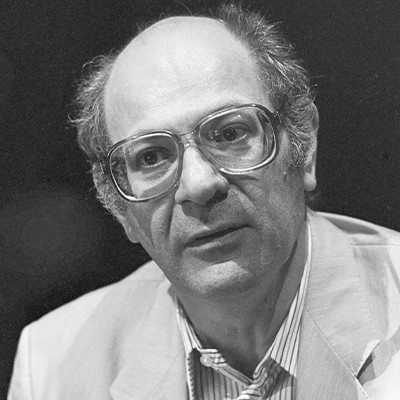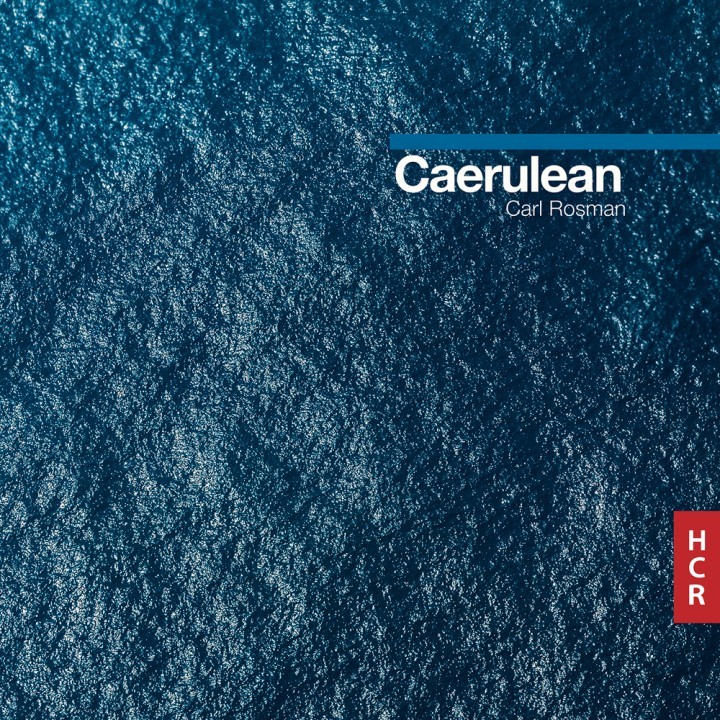Mauricio Kagel
The Argentinean-born German composer, Mauricio Kagel, was born from a Jewish family with both Russian and German origins. His family name Kagel (adopted by his grandfather), has German origins, and also a small town near Berlin is called so. He took private lessons of singing, orchestra conducting, piano, violoncello, organ, among also with Alberto Ginastera and Paz. His father gave him the first musical lessons but his first piano teacher was Vincenzo Scaramuzza, a pianist from Crotone, of whom, Mauricio Kagel, would keep a fervent souvenir for the rest of his life. At the university of Buenos Aires he studied with other teachers philosophy and literature, among them was also Jorge Luis Borges. He joined the Agrupacion Nueva Musica of Buenos Aires at the age of only 16 years old.
Fantasy, humour and originality are the main peculiarities of his works, Mauricio Kagel became one of the most significant authors in Musical and Contemporary Theatre. During his artistical career, he directed himself most of his works, either as a producer than as a director of all his movies and radio programmes. He received a lot of honours and credits, he has been played in lots of important contemporary music festivals. One of his last appearance took place in July 2006, for his 75th birthday at the Colon Theatre of Buenos Aires, the Goethe-Institut and also the Margarita Xigu Theatre, being called as the symbol of cultural exchange between Germany and Argentina, with concerts and open rehearsals.
Invited by Walter Fink, Mauricio Kagel was the second composer featured in the annual Komponistenporträt of the Rheingau Musik Festival in 1991. In 2000 he received the Ernst von Siemens Music Prize. Among his students were Maria de Alvear, Carola Bauckholt, Branimir Krstić, David Sawer, Rickard Scheffer, Juan Maria Solare, Gerald Barry and Chao-Ming Tung. He died in Cologne on September 18, 2008 after a long illness, at the age of 76
The Argentinean-born German composer, Mauricio Kagel, was born from a Jewish family with both Russian and German origins. His family name Kagel (adopted by his grandfather), has German origins, and also a small town near Berlin is called so. He took private lessons of singing, orchestra conducting, piano, violoncello, organ, among also with Alberto Ginastera and Paz. His father gave him the first musical lessons but his first piano teacher was Vincenzo Scaramuzza, a pianist from Crotone, of whom, Mauricio Kagel, would keep a fervent souvenir for the rest of his life. At the university of Buenos Aires he studied with other teachers philosophy and literature, among them was also Jorge Luis Borges. He joined the Agrupacion Nueva Musica of Buenos Aires at the age of only 16 years old.
Fantasy, humour and originality are the main peculiarities of his works, Mauricio Kagel became one of the most significant authors in Musical and Contemporary Theatre. During his artistical career, he directed himself most of his works, either as a producer than as a director of all his movies and radio programmes. He received a lot of honours and credits, he has been played in lots of important contemporary music festivals. One of his last appearance took place in July 2006, for his 75th birthday at the Colon Theatre of Buenos Aires, the Goethe-Institut and also the Margarita Xigu Theatre, being called as the symbol of cultural exchange between Germany and Argentina, with concerts and open rehearsals.
Invited by Walter Fink, Mauricio Kagel was the second composer featured in the annual Komponistenporträt of the Rheingau Musik Festival in 1991. In 2000 he received the Ernst von Siemens Music Prize. Among his students were Maria de Alvear, Carola Bauckholt, Branimir Krstić, David Sawer, Rickard Scheffer, Juan Maria Solare, Gerald Barry and Chao-Ming Tung. He died in Cologne on September 18, 2008 after a long illness, at the age of 76
Compilations with this composer
CompilationsRelated composers
Related composersMusic Map
Discover more about the classical music of today with NMC's Music Map, and exciting and educational online tool which enables you to see and hear the connections between composers, their teachers, pupils, influences and their works.
Music Map

